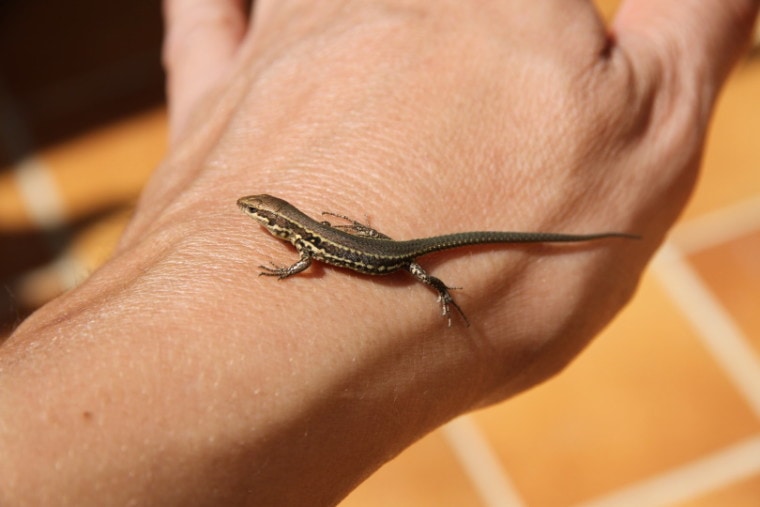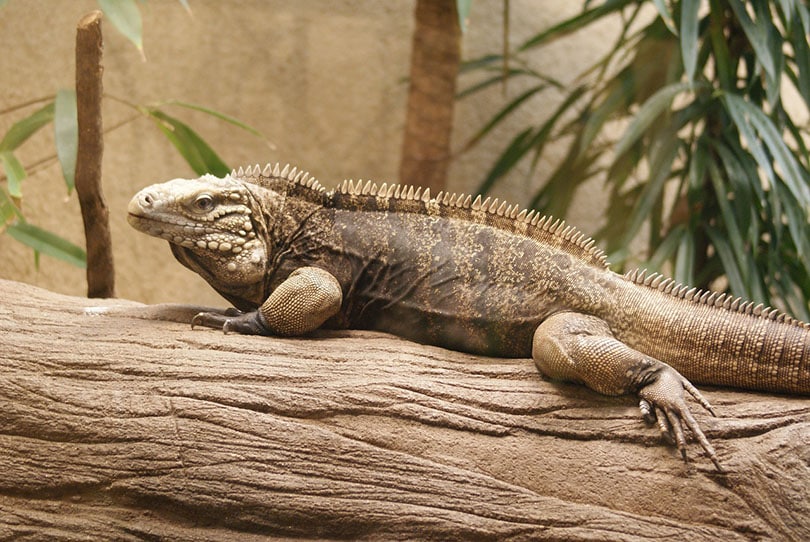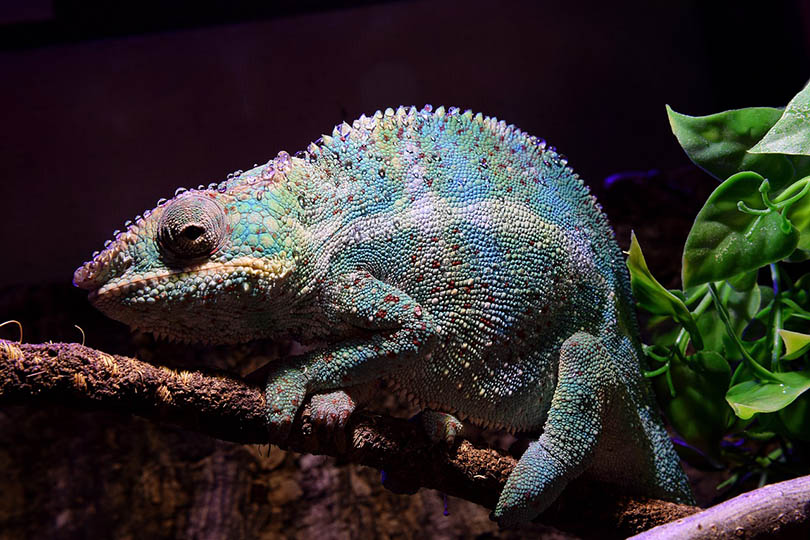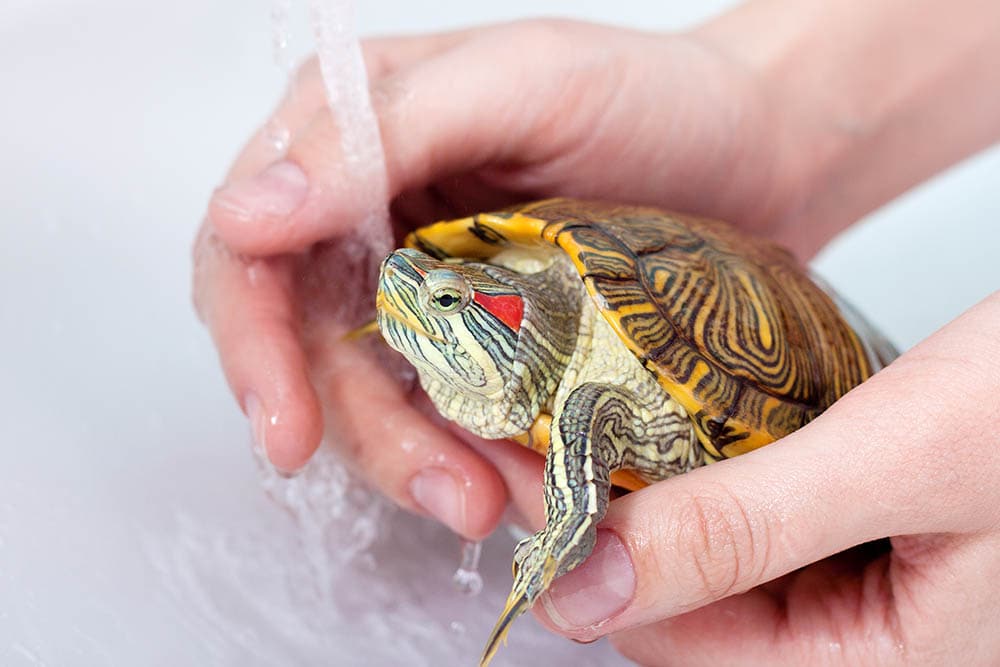
Exotic pets like reptiles make excellent pets, and there are many benefits to owning a scaly companion. Of course, while they are fascinating pets to care for, reptiles can be a long commitment.
Reptiles have some wonderful qualities that make them an ideal pet for those who want a laid-back pet that won’t chew their favorite slippers, bark till the neighbors complain, or need hours of playtime and evening walks after a long day of work. Instead, you get to sit back and watch your reptile explore while only needing to be fed occasionally and have their enclosure maintained.
So, how can owning a reptile benefit you? Let’s get into the 7 benefits of owning reptiles as pets.
The 7 Greatest Benefits of Having Reptiles as Pets
1. Low Maintenance

Reptiles are considered low-maintenance pets because they aren’t as demanding as a dog, cats, or small pets like rabbits are. Reptiles are failry self-sustainable in their environment, where they only rely on you for food, and water, and checking that the temperature or humidity (depending on the type of reptile you own) is ideal. They do not need as much care as other pets do, nor do they need to be brushed or washed by the groomers. However, they still need their enclosures cleaned and maintained, and veterinary care when necessary.
2. Less Mess
Unlike many other pets, reptiles do not make much of a mess. They will not chew your furniture or mess on your floors, nor will they track mud into your house. Reptiles will spend most of their time in their enclosures which will rarely get very messy if it is maintained properly. Unless you own a tortoise, you don’t have to worry about picking up feces in the garden or holes in your flower beds. Instead, you will be caring for a pet that is generally clean and doesn’t make a mess around your house.
3. Most Reptiles Live a Long Time

A reptile’s lifespan can sometimes be triple what a dog or cat would live for, so make sure you carefully consider this if you choose to care for a reptile that lives for a very long time. Certain snakes and lizards are known to live for up to 30 years, while some tortoises can reach 100 years old. Even though this means that you will be caring for your reptile for a very long time, you will be able to share a bond with your reptile pet and go through various phases of life with it.
4. Fewer Funky Smells
In comparison to other pets, reptiles rarely smell. If their enclosure starts smelling or the reptile itself has a strange smell, it usually indicates a problem. Otherwise, reptiles in general do not stink and you can prevent their enclosures from becoming smelly if you maintain them properly. The reduced smell from a reptilian pet is a great bonus if you don’t enjoy the litter box aroma—a reptile’s cloacal excretion does have the same pungent smell.
5. No House Training

Although you can train a reptile to be comfortable being handled, you won’t need to train them like a dog or cat. You will not have to train your reptile to not jump on your guests or bark at the mailman, nor will you need to potty train your reptile to use a litter box like you would with a cat. Most reptiles that have been handled by their breeders will have the basic training they need, but “housebreaking” your reptile is probably not something you will have to consider.
6. Quiet and Won’t Disturb Neighbors
Birds, cats, and dogs can be vocal and noisy, but you won’t have to worry about this with reptiles. Reptiles are quiet animals, and they will not get you in trouble for any noise disturbances. In fact, your neighbors might not even know they exist. This is also a bonus if you do not want a loud pet, as most reptiles do not produce many sounds, and they certainly don’t bark or meow if they want food or attention.
You won’t have to worry about your reptile repeating any “bad” words to your guests as a parrot would!
7. Less Expensive

While reptiles aren’t the cheapest pets, they are not the most expensive to maintain long-term. Most of the big expenses will go towards buying them an appropriate enclosure with all the enrichment, essential supplies, and accessories they need. After the initial payments, you will only need to buy them food, supplements, and anything they need that gets used up within a few months.
If your reptile eats live foods like crickets, you can even breed your own crickets to have a constant food source for your reptile. This not only saves money, but it can save you trips to the store. Reptiles do not require yearly vaccinations like many other pets, but you will need to keep money aside for when you need to take them to an exotic veterinarian.
Summary
Reptiles make fun and fascinating pets for the whole family. They are the better choice for people who want a low-maintenance and quiet pet that is rewarding to care for. Reptiles aren’t demanding pets, and they won’t take as much of your time and energy to maintain as other pets would.
If you plan to get a reptile as a pet, it is important to do thorough research on the type and species of reptile you are getting so you can provide them with a loving home and proper care.
Featured Image Credit: Laurent Duval, Pixabay









